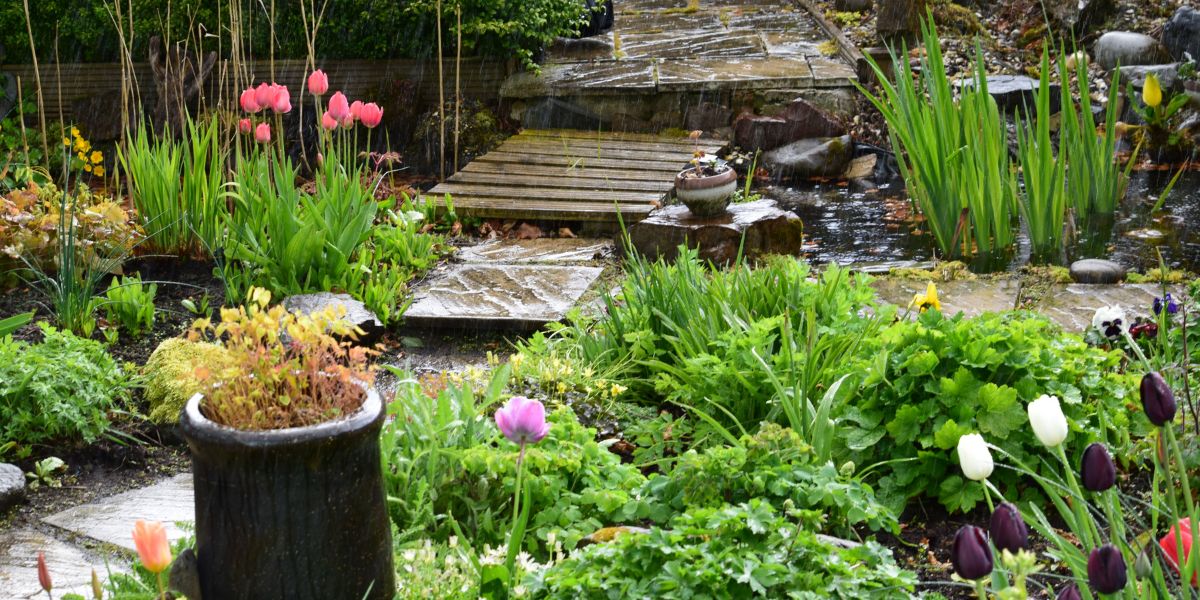Gardening in the Northwest offers unique challenges and opportunities due to its varied climate and abundant rainfall. This article delves into various strategies and ideas for creating a vibrant and sustainable garden in this lush region. With an emphasis on creativity and adaptation to the local environment, the following suggestions can help transform your outdoor spaces into beautiful, functional landscapes.
Embrace a Rain Garden
In regions like the Northwest, managing excess rainwater is a challenge and an opportunity. A rain garden is not only a practical solution but also a visually appealing feature. By planting water-tolerant plants, you can absorb runoff and reduce the impact on local waterways. Learn how to design a rain garden by incorporating native plants that thrive in wet conditions. For detailed guidelines, click here for tips on ensuring efficiency and aesthetics.
Container Gardening with Native Plants
Container gardening is a versatile option for any gardener, especially if space is limited. Using containers, you can cultivate a variety of native plants that are well-suited to the Northwest climate. This approach is perfect for species that require different soil types or more controlled conditions. Some excellent native plants for containers include the Western Blue Flag Iris and the Oregon Grape. These species ensure not only survival but also a year-round appeal in your garden.
Incorporate Edible Plants in Landscape Design
Integrating edible plants into your garden design isn’t just practical—it also adds beauty and utility. From berry bushes to apple trees, there are numerous options that thrive in the Northwest. Edible plants encourage local wildlife and provide fresh produce right from your backyard. Including species like the Salal berry and the Pacific Crabapple can enhance your garden’s aesthetics while supplying delicious fruits.
Rock Wall Gardening
For those interested in both aesthetics and functionality, rock wall gardening is a compelling choice. Utilizing natural stones to create levels and beds, this type of gardening is ideal for managing slopes and enhancing drainage, which is particularly useful in rainy climates. Alpine plants, succulents, and creeping varieties perform well in rock walls, making for a captivating garden feature that is both resilient and charming.
Innovative Storage Solutions for Gardening Tools
Keeping your gardening tools organized and easily accessible can enhance your gardening efficiency. Consider creative storage solutions such as a repurposed wooden pallet tool rack or a storage bench that doubles as seating. These not only serve a practical purpose but also add a rustic charm to your garden setting. Building custom shelving in a shed or designing a hanging tool cabinet can also be great ways to keep your tools in good order while adding character to your space.
FAQs
What are the best plants for a Northwest rain garden?
Opt for native species like the Red Osier Dogwood and the Western Sword Fern, as they thrive in wetter conditions.
Can edible plants really integrate seamlessly with ornamental gardening?
Absolutely, many edible plants like the Blueberry bush offer beautiful foliage and blooms, serving dual functions.
What’s an easy way to start with rock wall gardening?
Begin with hardy plants like Sedums and Sempervivums, which require minimal care and can tolerate rocky soil.
By embracing these creative gardening ideas and techniques, you can make the most of the unique Northwest climate. Whether it’s through building a rain garden, experimenting with container gardening, or integrating edible plants into your landscape, there are endless ways to enhance your garden’s functionality and aesthetic appeal. Moreover, innovative tool storage solutions can help maintain an organized and efficient gardening practice, making your outdoor activities both enjoyable and productive.












